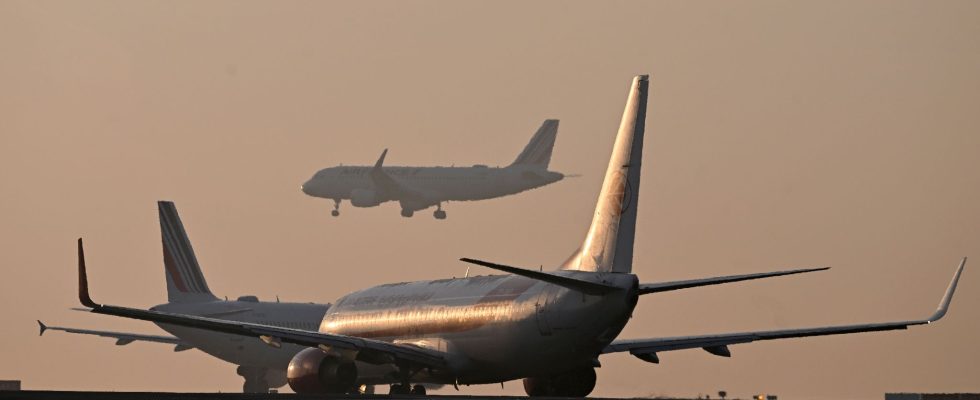French strikes have an impact internationally. In the aviation sector, air traffic control strikes against pension reform are forcing companies to bypass the country, causing “extreme exasperation among airlines”, according to Willie Walsh, the director general of the International Air Transport Association (Iata). These strikes “are almost daily”, and “disrupt air traffic not only in France, but all over the world because they force companies to go through other countries to avoid French airspace”, he said. -he denounced this Monday, June 5, on the eve of a new day of mobilization.
New day of strikes on June 6 and 7
Given the geographical position of France, these strikes have cascading effects on all European air traffic, which bristles many foreign carriers forced to cancel or delay flights. According to the European air traffic monitoring body, Eurocontrol, 10 million passengers were affected by the strike between March and early April.
Thus, the French Directorate General of Civil Aviation warned that air traffic would again be disrupted on Tuesday June 6 and Wednesday June 7 due to the participation of air traffic controllers in the 14th day of mobilization against the pension reform enacted mid-April, at the call of the unions. The administration has asked airlines to cancel a third of their flights at Paris-Orly but also one in five flights from or to the airports of Lyon, Marseille, Nice, Toulouse, Bordeaux and Nantes. These preventive cancellations are supposed to match the traffic and the numbers of air traffic controllers available, in order to avoid flight cancellations without the passengers having been able to be notified.
A petition to protect overflights of France
These work stoppages also affect certain air navigation centers, which guide planes flying over national territory. The impact is so strong that Ryanair boss Michael O’Leary launched a petition at the end of May to ask the European Union to “put pressure on France” to protect at least the overflights of French territory in the event of social movements, reports Reuters. The text obtained more than 1.1 million signatures among passengers, and was then submitted to the European Commission.
According to Ryanair, in the first five months of 2023 there were “57 days of ATC strikes (10 times more than in 2022) forcing airlines to disproportionately cancel thousands of EU overflights from Germany, Spain, Italy, UK and Ireland while France in particular is using the minimum service law to protect their domestic/short-haul flights while disproportionately canceling overflights”.
Ryanair has therefore asked the European Commission to protect 100% of overflights, to require a 21-day strike notice and a 72-hour notification before the strike regarding the level of participation. “The next French strike is scheduled for June 6 and 7 when our flights are full, and we are forced to cancel these flights. There is a simple solution to this. Other European states have laws that protect overflights” , denounced Michael O’Leary.
The company is supported by the Airlines for Europe association bringing together airlines such as Lufthansa and Air France-KLM, which also calls on the European executive to act. In response, a spokesman for the European Commission told Reuters it was “in active contact with the member states concerned to assess whether and how the continuity of service for overflights could be improved in the event of a strike”.
